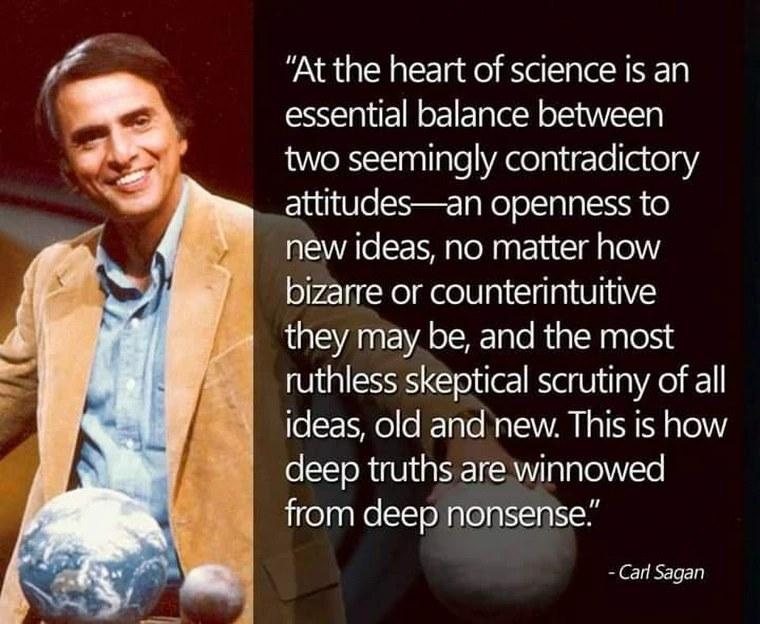this post was submitted on 08 Jan 2025
873 points (99.4% liked)
Science Memes
11542 readers
1395 users here now
Welcome to c/science_memes @ Mander.xyz!
A place for majestic STEMLORD peacocking, as well as memes about the realities of working in a lab.

Rules
- Don't throw mud. Behave like an intellectual and remember the human.
- Keep it rooted (on topic).
- No spam.
- Infographics welcome, get schooled.
This is a science community. We use the Dawkins definition of meme.
Research Committee
Other Mander Communities
Science and Research
Biology and Life Sciences
- !abiogenesis@mander.xyz
- !animal-behavior@mander.xyz
- !anthropology@mander.xyz
- !arachnology@mander.xyz
- !balconygardening@slrpnk.net
- !biodiversity@mander.xyz
- !biology@mander.xyz
- !biophysics@mander.xyz
- !botany@mander.xyz
- !ecology@mander.xyz
- !entomology@mander.xyz
- !fermentation@mander.xyz
- !herpetology@mander.xyz
- !houseplants@mander.xyz
- !medicine@mander.xyz
- !microscopy@mander.xyz
- !mycology@mander.xyz
- !nudibranchs@mander.xyz
- !nutrition@mander.xyz
- !palaeoecology@mander.xyz
- !palaeontology@mander.xyz
- !photosynthesis@mander.xyz
- !plantid@mander.xyz
- !plants@mander.xyz
- !reptiles and amphibians@mander.xyz
Physical Sciences
- !astronomy@mander.xyz
- !chemistry@mander.xyz
- !earthscience@mander.xyz
- !geography@mander.xyz
- !geospatial@mander.xyz
- !nuclear@mander.xyz
- !physics@mander.xyz
- !quantum-computing@mander.xyz
- !spectroscopy@mander.xyz
Humanities and Social Sciences
Practical and Applied Sciences
- !exercise-and sports-science@mander.xyz
- !gardening@mander.xyz
- !self sufficiency@mander.xyz
- !soilscience@slrpnk.net
- !terrariums@mander.xyz
- !timelapse@mander.xyz
Memes
Miscellaneous
founded 2 years ago
MODERATORS
you are viewing a single comment's thread
view the rest of the comments
view the rest of the comments

While I agree that most things require a compromise of two extremes, it is also important to acknowledge how they could result in worse outcomes.
Eg 1: You are sick; the doctor prescribes antibiotics. But you have some concerns about them so you only take it until you feel better.
But now the pathogen is still there, and it will rebound with new strength. (there's also a chance it becomes resistant due to selective pressure and its survival)
Eg 2: Compromise of democracy and authoritarian state. Those countries' governments tend to be more stable and enduring that are either of the two, but not a middle of the road. This is why the transition from one to the other is usually turbulent as well.
Fair point but I don't think it applies here. Balanced doesn't necessarily mean a compromise.
In your first example Golden Mean would be to take antibiotics until you are fully cured not less not more.
Same for your second example. Going too far in autocracy would could mean efficiency but also injustice and going too far into democracy could mean nothing ever gets accomplished due to endless indecision. This is exactly what elective democracy is so effective imo as it's a Golden Mean of these two edges.
That's what Golden Mean means - the center is where magic happens and the edges are always full of failure.
Oh so we should do exactly the right amount of things?
Depends on the type of distribution too. In some discrete cases there isn't a mean value. A binary choice for example has no applicability of the golden mean. Like a two party system. If neither represents your values, you can only choose the one that mostly does. Which is not the optimal outcome, just the local maxima.
The golden mean argument also assumes that there is only one good soulution, where multiple equally good ones can exist too.
I think you fundamentally misunderstand Golden Mean if you argument against it with statistics and I'll leave it here.
If I mix water and cement there is a distribution of the two, a ratio if you will. Just because statistics deals with distributions (of probabilities for example) doesn't mean all distributions are in the field of statistics.
I'll leave it at that.
Man you're trying to solve metaphysics wirh ratios and cement and shit lol go away
As hard as it may be to believe, I can't eat metaphysics for put a roof above my head with it. Even Plato didn't sit on perfect abstract chairs or ate abstract apples.
Here's another argument I thought of in the meanwhile:
If we accept that the rule of golden mean is universal, then it necessarily applies to itself. Thus, the correct use of the rule is somewhere between the absolutes of not applying it at all and applying it to everything. There are circumstances in which it shouldn't be used.
If we don't accept the rule as universally true, then there are circumstances in which it shouldn't be used.
QED